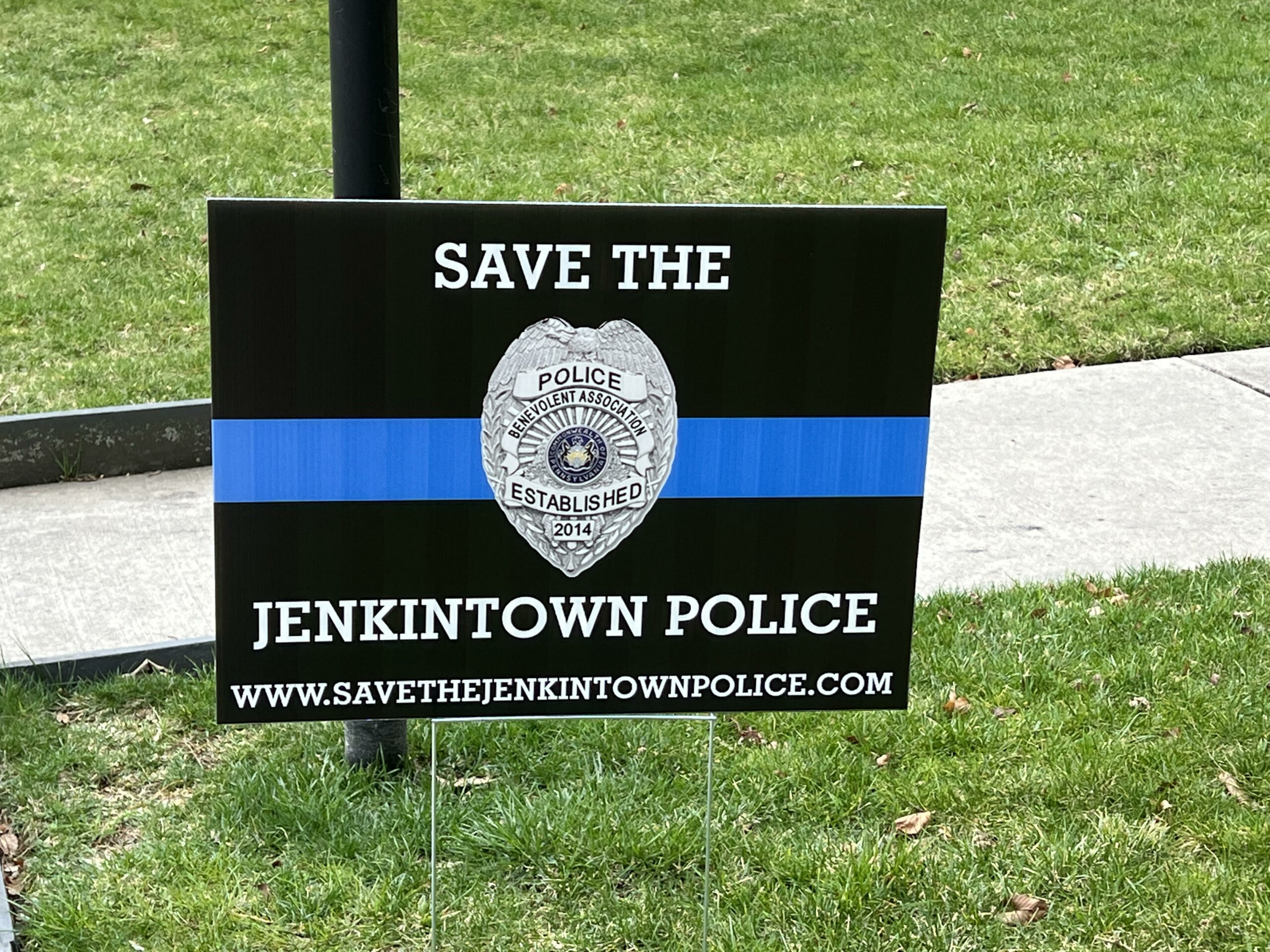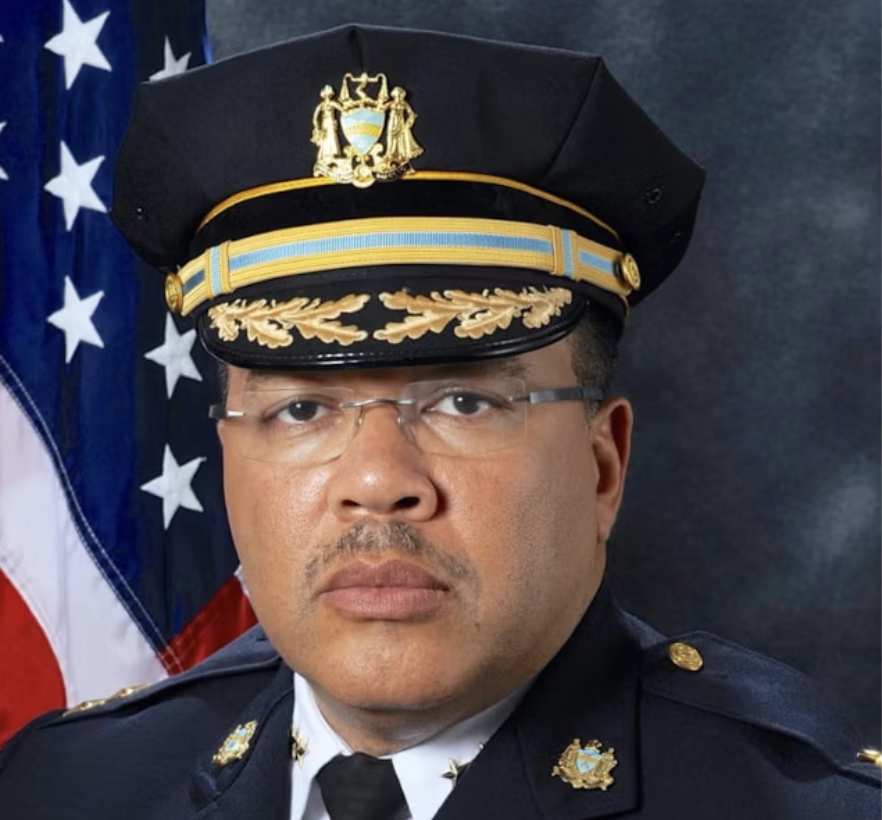Jenkintown to Seek State Help With Police, Public Safety Funding

When the Jenkintown Borough Council floated the idea of getting out of the local police business and outsourcing it to nearby communities, residents angrily rejected it. So, instead of a local solution, the borough is turning to the state.
At its workshop meeting Wednesday night, the council voted to send a letter of intent to the Pennsylvania Department of Community and Economic Development (DCED) asking the state to study its emergency services, police, fire, and emergency management and make recommendations on how to reduce costs.
The council is expected to vote to approve the letter again at its action meeting on May 22.
In February, more than 200 residents turned out after Police Chief Thomas Scott suggested the borough outsource its police department to Abington or Cheltenham. Most of the residents were vociferously against the idea and yard signs supporting the Jenkintown Police have popped up around the small borough.
Paying for police costs the borough $2.5 million a year, about half its $5.1 million annual budget. Rising costs mean higher taxes, and borough officials are looking for another solution.
“We have to find a way to control these costs,” Borough Manager George Locke told DVJournal after the meeting. And unlike a private consultant, the state’s review of the borough’s books is free.
Still, not everyone is happy about turning to Harrisburg for help.
During public comment, a resident asked why the borough was asking for assistance from “a pro-regionalization” entity. She said she had obtained emails through a right-to-know request showing Abington officials were not interested in providing police services to Jenkintown.
“Why is this still even being discussed?” she asked.
Locke said later he did not know what she was talking about since they had “never negotiated with any other municipality.”
Scott said the division of the DCED they are petitioning for help, the Governor’s Center for Local Government Services, will provide experts from various areas of public safety, finance, and legal issues. They will analyze the borough’s current situation and make recommendations.
“They will present a plan and help present it to the public,” said Scott.
In a follow-up email to DVJournal, Locke said the top priority is addressing the expense of providing police services. “What we are requesting is the police cost-benefit analysis and police management assistance. The other opportunities named [in the request] are areas that the borough and state are dealing with long term: planning of operations, and funding for all other public safety that is provided by the borough such as EMS, fire departments and emergency management.”
“The borough just having enacted a tax millage for an agreement with the Second Alarmers EMS services, has provided a solution to a difficult issue providing that service and how to fund that long term or if that is the best solution will have to be examined,” Locke added.
Council began the Fund 10 Ambulance Fund in 2023, with millage set at .050 mills, which, in the 2024 budget, equates to $13,451, said Locke.
“The fire companies have just completed a merger and the borough is overcoming a $1.2 million purchase of a fire truck while performing research and planning for the purchase of what is currently proposed to be up to two more fire trucks and a service vehicle for the fire department over the next few years. Emergency Management had been next to non-existent other than by name prior to COVID and Chief Scott coming onboard [in 2022], so a lot of work is being done there.”
The borough is required by law to provide public safety services, Locke said.
“As we work to put together a sustainable long-term capital plan, we feel fortunate to be afforded these services through the DCED, especially at no cost, and we hope to utilize the assistance offered to increase our chances of having a successful plan for the borough.”
Please follow DVJournal on social media: Twitter@DVJournal or Facebook.com/DelawareValleyJournal



